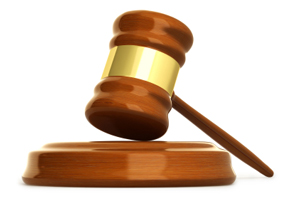
Long-embattled Dow Corning is still on the hook for complaints about 3 of its implantable tissue expanders after a 6th Circuit Court ruled that the devices count as breast implants for the purposes of a liability settlement worth more than $2 billion.
The decision affirms a lower court’s ruling that the mega-settlement was designed to include complaints about Dow tissue expanders that feature silicone envelopes filled with saline to help stretch breast tissue ahead of a permanent implant.
The ruling is the latest in a Dow’s 30-year old saga over its breast implants, with hundreds of thousands of patients claiming they were injured by the devices. The lawsuits were spurred in part by an early 1980s warning from consumer advocacy group Public Citizen claiming that silicone breast implants cause breast cancer.
In 1982 the FDA proposed bumping the devices to Class III, the highest risk category, a rule that was finalized in 1988. A handful of reports issued over the next few years seemed to strengthen the connection between silicone breast implants and systemic diseases, sparking a litigation frenzy.
Patient injury lawsuits began piling up in the early 1990s and a class action case was filed in 1992. By the end of 1993 there were more than 12,000 individual lawsuits filed against Dow, with patients claiming not only localized injury but disease such as lupus and rheumatoid arthritis were caused by their implants.
Dow dumped its breast implant business in 1992 (as did Bristol-Myers Squibb and Bioplasty) and filed for Chapter 11 bankruptcy in 1995 and in 1998 offered a $3.2 billion settlement, which was made part of the company’s bankruptcy reorganization plan. The terms of the settlement, according to PBS Frontline:
Those who want to cash-out immediately and not file a disease claim will be paid $2,000. This figure can also be combined with $5,000 for implant removal surgery and $20,000 for a ruptured implant. Those who have already filed a disease claim will receive between $10,000 and $250,000 plus any compensation claimed for removal or ruptures.
Later that year a federal-court appointed expert panel ruled that there was not evidence that silicone breast implants can cause disease. A 1999 report form the Institute of Medicine agreed.
Until 2012 the only companies with FDA approval to sell breast implants in the U.S. were Johnson & Johnson (NYSE:JNJ) and Allergan (NYSE:AGN). The FDA in March 2012 gave Santa Barbara, Calif.-based Sientra approval to sell its breast implants on the U.S. market, amid public outcry about the potential downsides of the devices.

